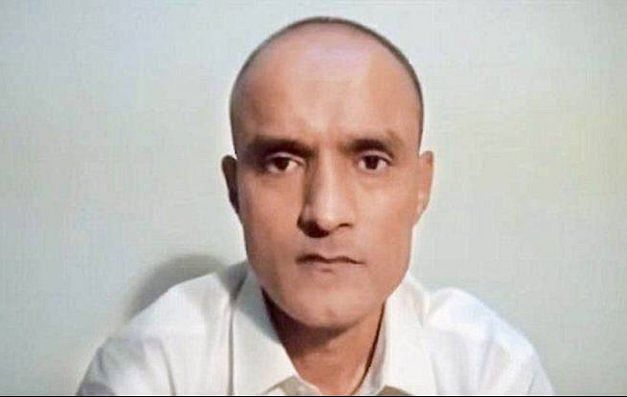
Imran Khan government is expected to launch domestic legal procedures for ‘trying terrorists’ after 18-21 Feb ICJ hearing.
New Delhi: The International Court of Justice (ICJ) is due to hold public hearings next month in the case involving Indian national Kulbhushan Jadhav who is on death row in Pakistan.
But a ruling in favour of New Delhi is unlikely to secure the immediate freedom of the former Indian Navy officer convicted by a military court of terrorism and espionage charges, a top Pakistani source told ThePrint.
India has challenged the verdict in the ICJ and public hearings are due between 18 and 21 February.
The Imran Khan government, which took power in August, will let the ICJ give its verdict, but then follow its own domestic legal procedures for “trying terrorists”, the source said.
Islamabad has, however, decided that Jadhav should be given proper treatment and not be tortured, the source said, but added that he will “certainly not be released anytime soon”.
The previous Pakistani government of Prime Minister Nawaz Sharif had said that Pakistan would go ahead and execute Jadhav even before the hearing at the ICJ was over.
But matters seem to have mellowed down a bit under Khan.
The new government in Pakistan, the source said, is keen on having a cordial relationship with India, but it will be difficult for Khan to convince “the deep state” to not be harsh on Jadhav and use him as a political ploy against India in front of the world.
This marks a shift from Khan’s stand as an opposition leader, when he was extremely vocal on Jadhav’s case and had called him a terrorist.
Also read: ‘He looks like he has aged 20 years’: Kulbhushan Jadhav’s friends march for his release
‘Bilateral agreement’
Jadhav was allegedly arrested by Pakistani security forces in March 2016. Islamabad said he was trying to enter the country illegally via Iran.
He has been accused of directing and executing IED and grenade explosions in the Balochistan region, and at the ports of Gwadar, Turbat and Jiwani.
He has also been charged with carrying out explosions in gas pipelines and electric pylons, besides being named in the 2015 Quetta terror attacks, among others. Pakistani authorities have also said that his main objective was to sabotage the China-Pakistan Economic Corridor (CPEC).
Jadhav was tried by a Pakistani military court and given the death sentence in April 2017, which was confirmed by Pakistani army chief Qamar Javed Bajwa the same month. Bajwa is yet to take a call on the mercy petition filed by Jadhav.
India moved the ICJ in May 2017.
India’s main contention is that Pakistan has violated the Vienna Convention on Consular Relations by not giving India access to Jadhav, who was reportedly working in Chabahar, Iran, after his retirement from the Indian Navy at the time of his arrest.
While India has failed to obtain consular access for Jadhav, Pakistan did allow his mother and wife to meet him in December 2017 for around 40 minutes in the presence India’s deputy high commissioner to Pakistan, J.P. Singh.
According to security experts, India is unlikely to secure relief from the ICJ in this case in light of the charges against Jadhav.
“Those charged with charges of espionage by rival states are, as a matter of fact, almost never released by international courts,” said Happymon Jacob, an associate professor of disarmament studies at Jawaharlal Nehru University and a security expert.
“Instead, New Delhi should invest time and effort in working out a deal with Pakistan for Jadhav’s release. Even more so, the two sides should reach a bilateral arrangement to exchange people charged with espionage in either country.”
Also read: Didn’t cut Kulbhushan Jadhav’s mention from Pak finance minister’s interview, says BBC

COMMENTS